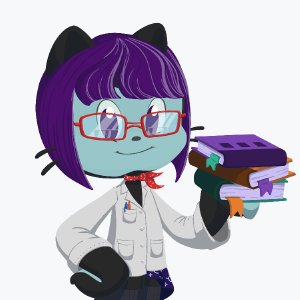That wouldn’t surprise me. I have always been a night owl and maybe slightly non-24. I can get up early, but a single late night will destroy my schedule as my body reverts to that and takes days or weeks to recover.
I read a study that says people with sleep disorders are more likely to be diagnosed with ADHD and vise versa. Not just insomnia either. Narcolepsy, Insomnia, Restless Leg Syndrome, Sleep Apnea…all of em.
Suggests they are tied together. My doctor says one can cause the other so it comes down to the chicken or the egg when diagnosing.
Plural of anecdote isn’t anecdata, but I have both ADHD & impaired sleep.
Same. Chronic insomnia since I was 20. Diagnosed ADHD in my late 40s.
Is this correlation and causation tho?
Like, a lot of people with ADHD take stimulant medication.
Why is it so hard to get into peoples heads that one of the most common symptoms of ADHD is abnormal reaction to stimulants?
The thing that convinced me my ADHD diagnosis was correct was taking my prescription stimulant and then taking a nap. See also coffee: I’ve found no correlation between my last cup of the day and when I get to sleep. I’m also incapable of drinking enough coffee to make me jittery, not even when my office had an all-you-can-drink Keurig stand.
I achieved jittery once somewhere between the second and third full coffee cup (the medium size paper to go cups from a coffee shop, not glassware cups) of straight espresso 😅
Edit: for the record, DO NOT RECOMMEND!! I could hear my heartbeat loudly for like an hour, and uncomfortably fast for a couple hours after that. The worst part was an absolutely boring day at work with nothing to do.
Plural of anecdote isn’t anecdata
I love this. Thank you.
You shouldn’t love this. It is a statement informed by a misunderstanding of epistemology and the philosophy of science.
Can you explain what you mean? Because I think we’re reading a very different meaning into it.
I read it as clever wordplay to acknowledge that one’s anecdote is not the same as data (by putting “data” in place of “dote” in ‘anecdote’ due to the similar sound). Considering that “argument from anecdote” is literally considered a type of fallacy, highlighting that one’s own experience is not scientifically rigorous enough to be considered data seems to be in alignment with general thinking on the matter.
Then again I’ve just learned that in 2020 the OED actually published “anecdata” literally as a facetious/disparaging plural of “anecdote,” so perhaps that’s why you take issue with the quote?
As someone with adhd reading this at 4 in the morning because he can’t go back to sleep, i find this information personally assaulting
I appreciate you keeping content flowing in this community! That said, this study is from 2012, so the conclusions may be somewhat out of date.
I realize that I was complaining without offering anything useful. Here is a more recent article that addresses a similar topic:
This is pretty long. I’m definitely gonna come back to it very soon though
No I won’t. I’ll mean to. But I won’t.
I’ll add it to my mountain of saved links to never be seen again.




